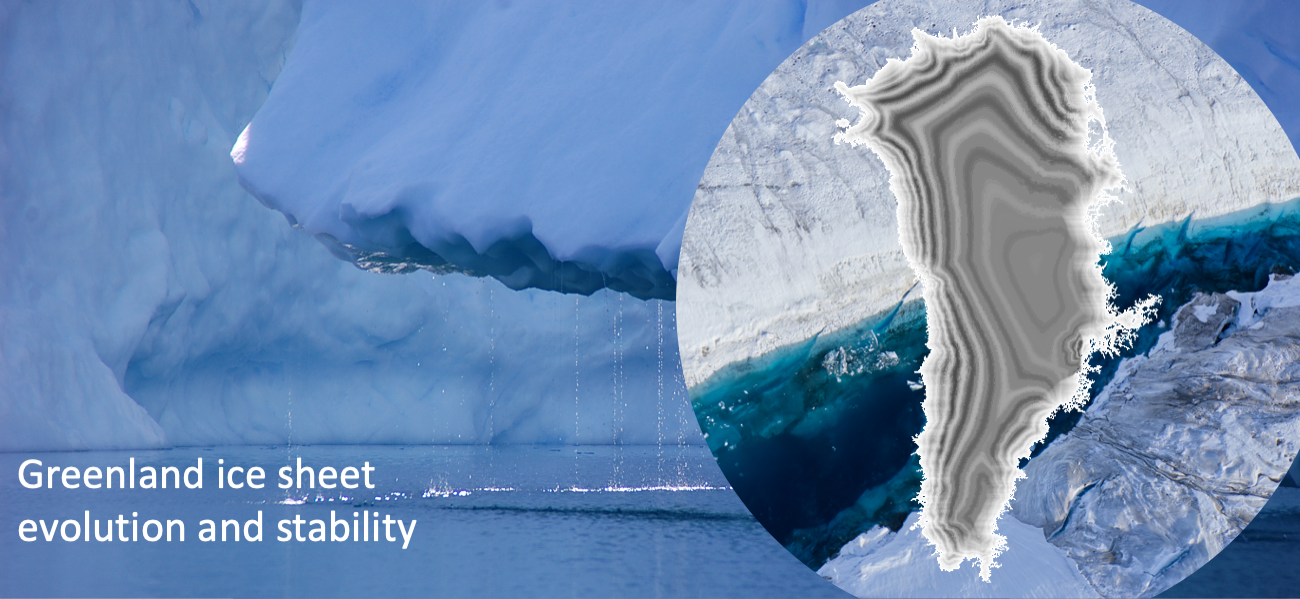Greenland ice sheet evolution and stability

Luisa Poto, Ole Zeising via
The Greenland ice sheet is one of the largest contributors to sea-level rise today and is expected to continue losing mass in the future under increasing Arctic warming. Sea-level rise is threatening people’s habitat, livelihoods, and infrastructure. Therefore, reducing uncertainties in projections of future sea-level contribution from the Greenland ice sheet is of the highest importance. The research project GREASE has two main objectives that address the response of the ice sheet to climate change in the short-term and the long-term, respectively. The first objective is to determine upper bounds for rates of sea-level contribution from the Greenland ice sheet until 2050, 2100 and 2150. The results will serve as input for planners working on protection plans for cities and infrastructure in coastal areas worldwide. The second objective is to constrain climate change trajectories that lead to a stabilisation of the Greenland ice sheet until 2500. Reaching this objective will contribute to the evaluation of global mitigation targets to avoid a substantial loss of the Greenland ice sheet. The project will develop and use novel modelling techniques to study ice sheet evolution in response to future climate change. It will combine process understanding and detailed information from climate and ice sheet and modelling.The research project GREASE has two main objectives that address the response of the ice sheet to climate change in the short-term and the long-term, respectively. The first objective is to determine upper bounds for rates of sea-level contribution from the Greenland ice sheet until 2050, 2100 and 2150. The results will serve as input for planners working on protection plans for cities and infrastructure in coastal areas worldwide. The second objective is to constrain climate change trajectories that lead to a stabilisation of the Greenland ice sheet until 2500. Reaching this objective will contribute to the evaluation of global mitigation targets to avoid a substantial loss of the Greenland ice sheet. The project will develop and use novel modelling techniques to study ice sheet evolution in response to future climate change. It will combine process understanding and explicitly modelled feedbacks from coupled climate-ice sheet experiments with detailed information from standalone ice sheet modelling.